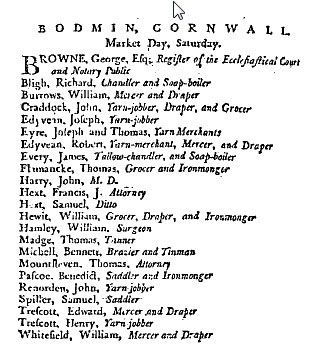12. Don't Search for a Nonexistent Record – In genealogy, a big challenge is knowing whether a record even exists. For example, trying to search for a government birth certificate in a region before the government issued birth certificates. Sounds familiar? We have all done it.
Most people assume birth certificates go back forever. But did you know that some American states did not issue birth certificates until well into the 1900s? For example, Tennessee did not issue statewide birth and death certificates until 1908. Before that time, birth certificates were only issued by some cities, such as Chattanooga (from 1879), Knoxville (from 1881), Nashville (from 1881) and Memphis (from 1874). New Mexico did not start issuing birth certificates until 1919 (i.e. after the end of World War I).
Before searching for any type of record, do a bit of research to make sure the record actually existed during the time period that interests you. Fortunately, we can help you if you happen to be researching ancestors from England. You can use our detailed Date Guide to English Genealogy to know exactly when all the major record sets first became available in England and Wales.
The
Date Guide to English Genealogy discusses the availability of all sorts of interesting ancestral record sets, such as this 1783 trade directory from Cornwall.
13. Search Obscure Websites – Have you ever tried to search for someone on Google and all you ever come up with are references to sites like LinkedIn? If the person you were looking for was that easy to find then you wouldn’t need to read this article. Unfortunately, there are many people that even today have a very small footprint of the internet. So, how do you find them?
Start by searching for the person using a specialty search engine called A Million Short. It removes the top million websites from all its search results. You only get results from obscure websites that usually don’t even start to appear until about page 20 of Google searches.
The technique of targeting obscure websites can really pop up some interesting results. Check out Million Short: A Different Kind of Search Engine to get the most out of this interesting and very useful search engine.
Another useful resource for finding living people with a minimum internet presence is the
Genealogy Search Engine. It is not just for dead people. It is also a very useful place to search for a living person who has a very small footprint on the internet.
How does this work? The
Genealogy Search Engine indexes many recent obituaries. Obituaries often provide a mini family tree because they list close family members of the deceased (see
Look for Hidden Family Trees). It is not unusual in an obituary to list living people who have no other presence on the internet. This is particularly true of older living people. Even people who don't want to be on the internet often get listed in obituaries as family members rarely ask for permission before writing the obituary.
The
Genealogy Search Engine will pick references to these hard-to-find people up if you search for them by name.


